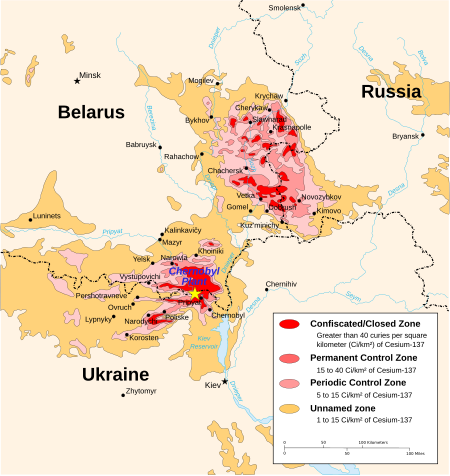 As parliament today waits to question the Foreign Affairs and Environment ministers about Portugal’s climb-down on the threat from Spain’s Almaraz nuclear power station development, news has been released that a Portuguese Army team under NATO reported back in 2010 that 800,000 people in Portugal would be affected by a radioactive cloud if there was an accident on the scale of Chernobyl in the Ukraine.
As parliament today waits to question the Foreign Affairs and Environment ministers about Portugal’s climb-down on the threat from Spain’s Almaraz nuclear power station development, news has been released that a Portuguese Army team under NATO reported back in 2010 that 800,000 people in Portugal would be affected by a radioactive cloud if there was an accident on the scale of Chernobyl in the Ukraine.
The military simulation was carried out seven years ago, yet only now has been revealed on Radio Renascença, showing that the north of Portugal would be the region most affected if the Almaraz plant, 100kms from the Portuguese border, caught fire and blew up.
The two ministers are to explain their decision to parliament having accepting the construction of a nuclear waste dump at Almaraz as being ‘adequate and safe.’
The 2010 study by the Biological, Chemical and Radiological Defence Element of Land Forces Command at Nato, ran a simulation of a worst case scenario, similar to the one that occurred at Chernobyl in 1986, when a reactor blew up after a fire.
The resulting exclusion zone in the Ukraine, Belarus and Russia covers 2,600 km2 and will continue to be contaminated by radiation for about 300 years.
The NATO study simulated the evolution of the radioactive cloud in the 40 hours after a nuclear accident as it covers Portuguese territory where it would arrive 12 hours after the explosion. The predictions are based on an analysis of the meteorological conditions registered between 2000 and 2010 and the geography of the surrounding area.
The worst hit would be Idanha-a-Nova, Castelo Branco and Penamacor, with Segura in Idanha-a-Nova having to be evacuated - which is news to its residents.
The National Civil Protection Authority in Portugal said it is completely unaware, until today, that this study existed.
However, the national director of emergency planning, Jose Oliveira, said that the National Civil Protection Authority is “attentive to the situation and has done simulation exercises,” but that there are no coordinated cross-border emergency plans, should the worst happen.
The coordinator of the Iberian Antinuclear Movement says that the Environment Minister, João Matos Fernandes, should not even go to Parliament today, after the announcement that the Armed Forces predicted back in 2010 that 800,000 Portuguese would be affected by a nuclear accident in Almaraz, adding that Fernandes should submit his resignation to the prime minister.
Antonio Eloy, who coordinates environmental organisations in Portugal and Spain, praises the release of the information by Radio Renascença,
"This news has a detail that we have never mentioned: it assigns numbers, a projection of how many Portuguese would be affected, which is not far from what we thought, but it is absolutely shocking," says the environmentalist.
In a statement released this afternoon, Eloy notes "without surprise but with great concern" the news that "the Portuguese Army for the first time confirms that a nuclear accident at Almaraz will affects territories in the Portuguese Republic and will contaminate about 800,000 Portuguese."
The two ministers will explain to parliament their decision to accept as ‘adequate and safe’ the construction of a new warehouse for nuclear waste in Almaraz, a decision that has been strongly criticized by opposition parties and environmentalists.
Portugal lodged a complaint with the European Commission as Spain had failed to report its intention to build the nuclear dump without carrying out cross-border environmental and safety studies which it should have done under EU rules.
The complaint was suspended when Portugal reached an agreement with Spain which promised to provide information so there could be a public consultation in Portugal after a team of Portuguese technicians were allowed to undertake a site visit.
The report was widely criticised as a whitewash with Spain providing little useful documentation and the intervention of Jean-Claude Juncker who put the Portuguese government under pressure to drop the complaint and let Spain get on with its nuclear development ambitions.























